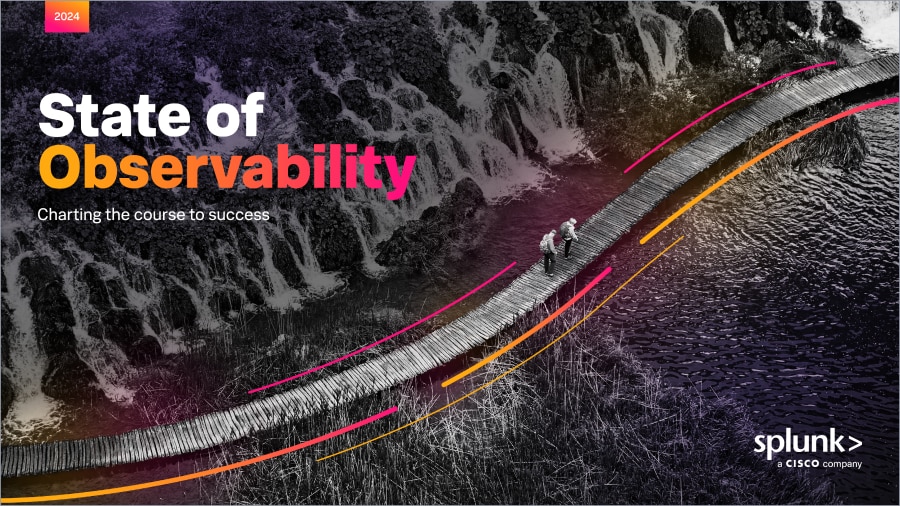Monitor and optimize your modern, AI-powered applications with Cisco AppDynamics

The rapid advancement of generative artificial intelligence (GenAI) has reshaped various industries and transformed the way we interact with technology. Companies across diverse sectors have fully embraced the power of GenAI to such an extent that it is now an integral part of the digital experience. It is the engine behind chatbots, call desks, algorithms, code generators, data analyzers, content producers and countless other everyday digital interactions.
OpenAI has emerged at the forefront of this AI revolution with its flagship product, ChatGPT. ChatGPT and other advanced large language models (LLMs) excel in natural language understanding and generation, allowing them to facilitate seamless interactions between humans and machines. Applications powered by LLMs can understand and respond to users in a human-like manner, making them easier to interact with for individuals of all levels of expertise.
The cost of creating modern applications
However, cutting-edge technology always comes with a cost. Companies using OpenAI API integrations in their applications need to monitor usage and costs to ensure the price tag doesn’t outweigh the benefits. With OpenAI language models currently costing up to $0.12 per 1,000 tokens (equivalent to 750 words), expenses can add up quickly — especially when dealing with high volumes of output. For organizations that aren’t monitoring their APIs, unexpected cost overruns can significantly impact their bottom line.
While there may be many new OpenAI cost-monitoring solutions hitting the market, companies need to monitor more than just costs to deliver a flawless digital experience for their end-users. Companies need full-stack observability to ensure that they are not only optimizing the cost of API calls but that their OpenAI-powered services are also running smoothly — because a bad customer experience and brand reputation can end up costing companies even more.
Introducing AppDynamics OpenAI API performance and cost monitoring
As AI integrations become increasingly popular, we are excited to share that OpenAPI monitoring has just been added to the Cisco AppDynamics application performance monitoring (APM) suite. Now, application owners and operations professionals can monitor both OpenAI costs and application performance all within the same single pane of glass — which means no more surprise overage fees for teams at the end of the month.
Companies are now able to optimize cost and monitor the performance of their OpenAI integrations using comprehensive insights available through the Cisco AppDynamics OpenAI Monitoring solution. Our OpenAI support is currently available for Java and Python applications and is built into our standard agents, allowing every AppDynamics customer to view their OpenAI metrics, such as calls per minute, costs involved, errors per minute and ChatGPT tokens, on an easy-to-read dashboard.

Here are some example use cases of our OpenAI monitoring capability:
- Policy guideline compliance: Determine whether OpenAI calls made by your application are in line with your organization’s policy guidelines.
- Cost analysis: Calculate the cost incurred by calls from your OpenAI-powered application.
- Response time tracking: Monitor the average response time for OpenAI calls.
- Token usage per call: Track the number of tokens used per call to understand the resource requirements of your application.
- A/B testing: Utilize the data to conduct A/B testing between different versions of your application as the LLM capabilities evolve between versions. You can also compare the performance of different models, such as GPT-3 and GPT-4, to determine which one better serves your application’s needs.
- Impact of OpenAI availability: If your application heavily relies on OpenAI calls, the monitoring system can help you assess the availability of OpenAI and the potential impact on your application.
Accelerating our customers’ digital AI journey
As GenAI continues to shape our world, it is crucial for companies to adopt monitoring and observability solutions to drive the success of their AI initiatives. AppDynamics OpenAI API support equips businesses with necessary tools to monitor and optimize their most modern applications, ensuring that organizations can leverage AI technologies with confidence and deliver cutting-edge and exceptional experiences to their customers.
Visit AppDynamics product updates to learn more about Cisco AppDynamics OpenAI API Monitoring solution and how it can transform your business’s AI operations.
This content originally published on AppDynamics.com.
Related Articles
About Splunk
The world’s leading organizations rely on Splunk, a Cisco company, to continuously strengthen digital resilience with our unified security and observability platform, powered by industry-leading AI.
Our customers trust Splunk’s award-winning security and observability solutions to secure and improve the reliability of their complex digital environments, at any scale.




